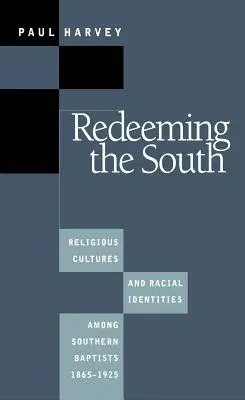Paul Harvey
(Author)Redeeming the South: Religious Cultures and Racial Identities Among Southern Baptists, 1865-1925Paperback, 21 April 1997

Qty
1
Turbo
Ships in 2 - 3 days
In Stock
Free Delivery
Cash on Delivery
15 Days
Free Returns
Secure Checkout
Part of Series
Fred W. Morrison Series in Southern Studies
Print Length
344 pages
Language
English
Publisher
University of North Carolina Press
Date Published
21 Apr 1997
ISBN-10
0807846341
ISBN-13
9780807846346
Description
Product Details
Author:
Book Format:
Paperback
Country of Origin:
US
Date Published:
21 April 1997
Dimensions:
23.22 x
15.52 x
2.29 cm
ISBN-10:
0807846341
ISBN-13:
9780807846346
Language:
English
Location:
Chapel Hill
Pages:
344
Publisher:
Weight:
530.7 gm

